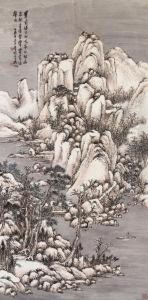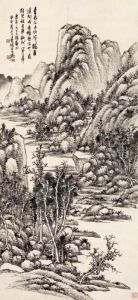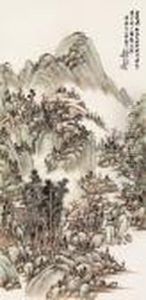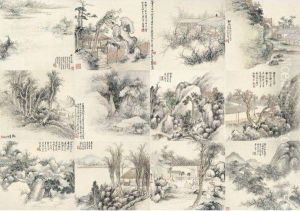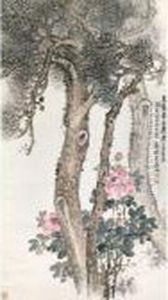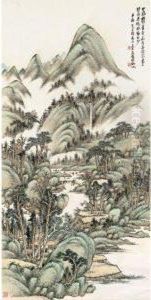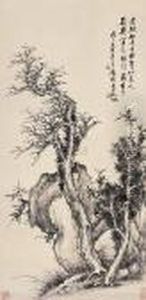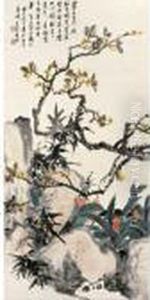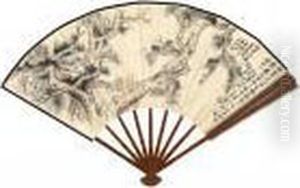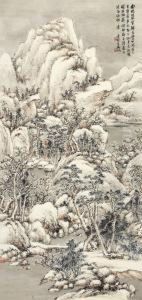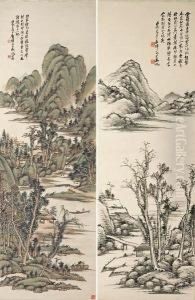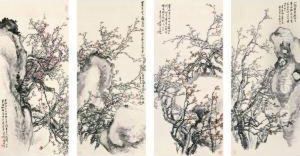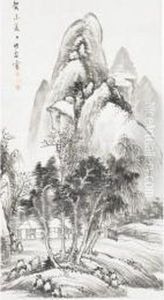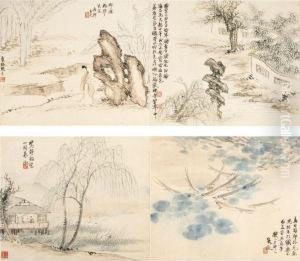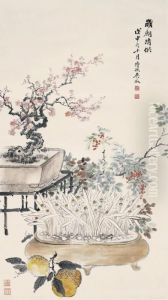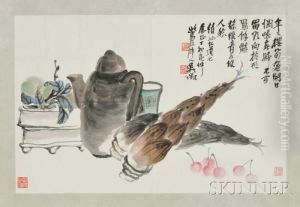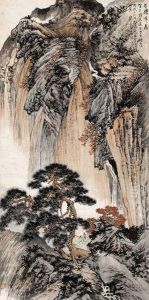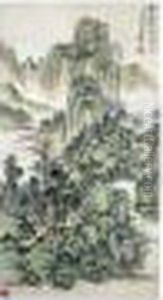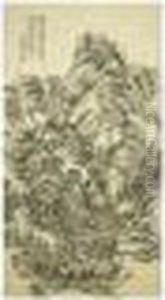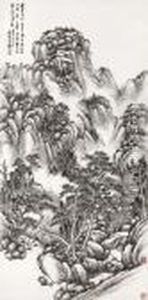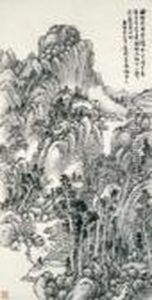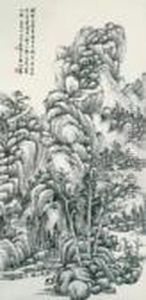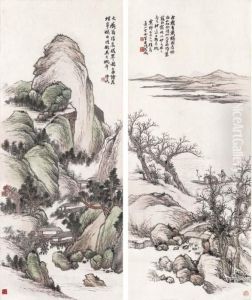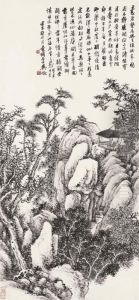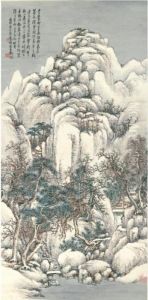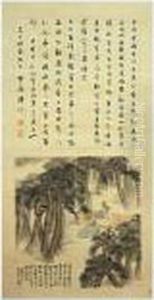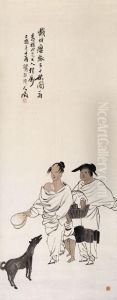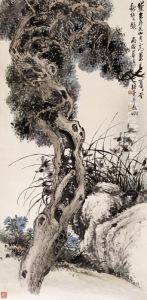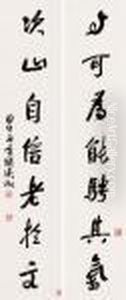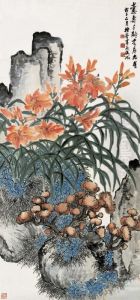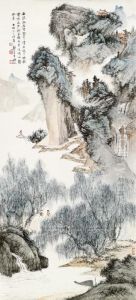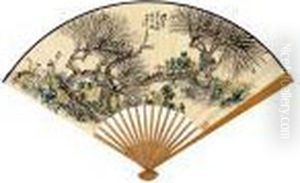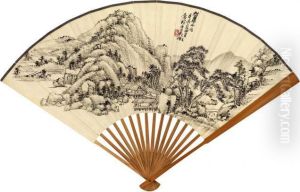Wu Zheng Paintings
Wu Zhen (吴镇) was a Chinese painter during the Yuan dynasty, which was a period where China was ruled by the Mongols. Born in the Zhejiang province, Wu Zhen was one of the Four Masters of the Yuan dynasty, alongside Huang Gongwang, Ni Zan, and Wang Meng. These artists are celebrated for their significant contributions to the development of Chinese landscape painting.
Wu Zhen's style was deeply rooted in the traditions of the Song dynasty (960–1279), and he revered the ancient masters, drawing inspiration from their works. He is particularly known for his meticulous brushwork and his preference for portraying rustic and tranquil landscapes that reflect a sense of harmony and balance. Wu Zhen was a scholar as well as a painter, and his works are often imbued with poetic and philosophical undertones, which was a common practice among literati painters of the time.
His most famous works include the handscroll 'Fisherman' and 'Storied Mountains and Dense Forests.' Wu Zhen's paintings were characterized by their strong compositional structures and his use of the 'dry brush' technique, which imparted a sense of age and venerability to his landscapes. Unlike many of his contemporaries, Wu Zhen often avoided using color, relying instead on ink to create varied tones and textures.
Despite his talents, Wu Zhen lived a reclusive life, often in poverty, and was known for his resistance to serving the foreign Mongol rulers of the Yuan dynasty. His art reflects his scholarly pursuits and his commitment to the values of the literati, embodying the ideals of self-expression and moral integrity. Wu Zhen's legacy lives on through his profound influence on later generations of Chinese artists, and his work remains an integral part of the study of Chinese art history.
